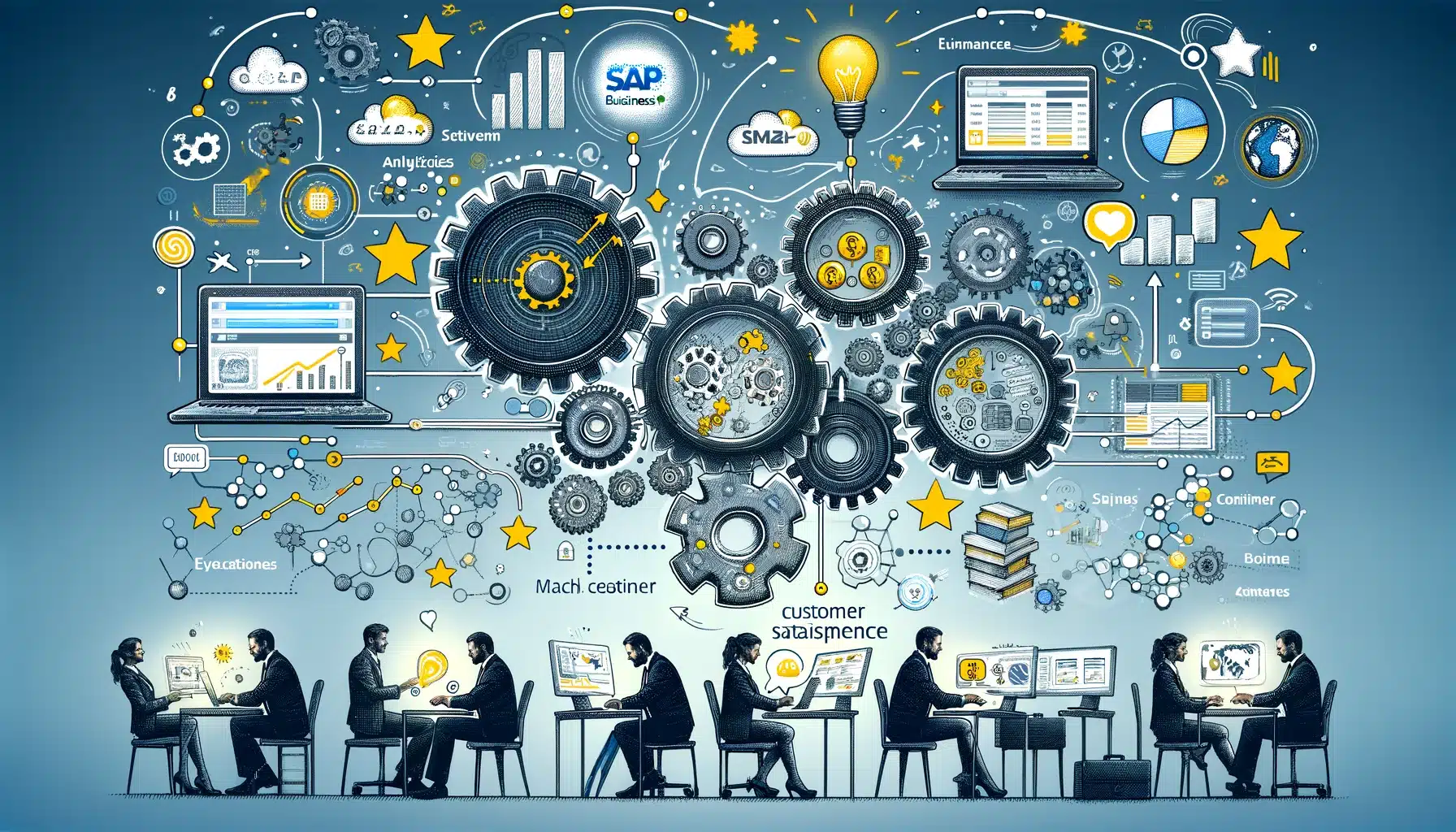
In the B2B sector, customer experience is paramount. It’s not just about selling a product or service; it’s about building and maintaining strong relationships with your clients. A positive customer experience can lead to increased customer loyalty, more referrals, and ultimately, higher revenue. In today’s competitive business environment, providing an exceptional customer experience is a key differentiator.
SAP Business One is a comprehensive enterprise resource planning (ERP) solution designed for small to mid-sized businesses. It integrates all core business functions across your entire company, including sales, customer relationship management, finance, and operations.
In the context of B2B, SAP Business One can significantly enhance the customer experience. It provides real-time information, enabling businesses to respond quickly to customer needs and expectations. It also streamlines processes, reducing errors and improving efficiency. With SAP Business One, businesses can provide a seamless, personalized experience to their B2B customers, leading to stronger relationships and increased customer satisfaction.
SAP Business One offers a range of features that can significantly enhance the B2B customer experience, including:
SAP Business One has a significant impact on sales and marketing in the following ways:
SAP Business One offers a range of integration and add-on options for B2B and B2C e-commerce:
The B2B customer experience is undergoing a significant transformation, driven by digitalization and changing customer expectations. Today’s B2B customers increasingly demand the same level of ease, speed, and service they enjoy as consumers. This shift is leading to the emergence of the B2B Experience Economy, where the focus is not just on the product or service, but also on the overall customer experience.
One of the key trends shaping the B2B landscape is the growing importance of e-commerce. As e-commerce continues to dominate many sectors of the economy, businesses are looking for ways to improve online B2B transactions. This includes speedier purchase order processes, easy storefront creations, better product listings, and low-cost marketing and advertising options.
Another trend is the increasing demand for personalized experiences. B2B customers now expect personalized interactions and solutions tailored to their specific needs. This requires businesses to have a deep understanding of their customers and the ability to deliver personalized experiences at scale.
SAP Business One is uniquely positioned to help businesses navigate these trends and deliver superior B2B experiences. This comprehensive ERP solution offers a range of features that can improve the B2B experience for customers.
For instance, SAP Business One can streamline operations and simplify the complexities of ordering and sales processes, leading to increased efficiency and improved customer experience. It also provides businesses with sophisticated analytical charting capabilities and predefined analytics content, enabling them to make data-driven decisions and deliver personalized experiences.
In the context of the growing importance of e-commerce, SAP Business One offers several features that can improve online B2B transactions. These include easy storefront creations, better product listings, and low-cost marketing and advertising options. Furthermore, SAP Business One allows businesses to establish group-specific pricing for their clients along with discount pricing for their B2B and B2C e-commerce patrons, enhancing the flexibility of customer experiences.
As businesses look to the future, SAP Business One will continue to play a crucial role in shaping the B2B experience. Its ability to streamline operations, deliver personalized experiences, and improve online transactions makes it a valuable tool for businesses looking to stay ahead in the evolving B2B landscape. With SAP Business One, businesses can confidently navigate the complexities of B2B commerce and deliver superior customer experiences, driving profitability and success in the B2B Experience Economy.
SAP Business One has demonstrated real-world results and a positive impact on customer satisfaction and business growth. It offers a comprehensive solution for managing all aspects of a business, from financials and sales to customer relationships and inventory.
Key points discussed include:
The importance of SAP Business One in enhancing the B2B experience for customers cannot be overstated. It provides a unified and streamlined platform that enables businesses to deliver a superior customer experience, leading to increased customer satisfaction and business growth.

Co-Founder of Infoworld Consultancy Pvt Ltd. We provide ERP and other Business applications for SME. We are SAP Business One partner since 2009.
Stay ahead in a rapidly world. Subscribe to Prysm Insights,our monthly look at the critical issues facing global business.
Copyright 2024 InfoWorld | All Rights Reserved | Powered by InfoWorld


